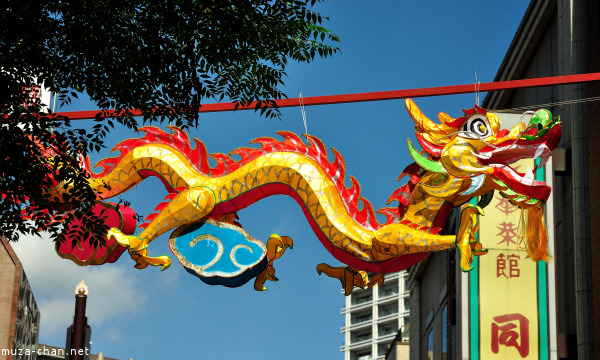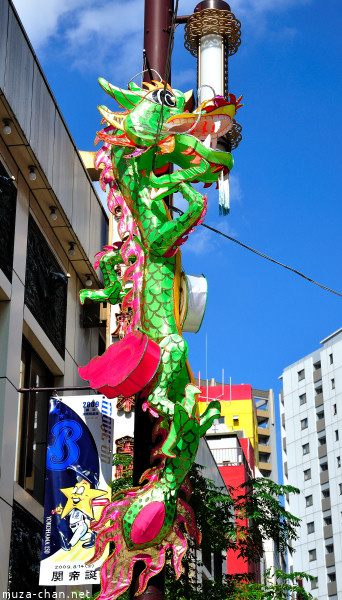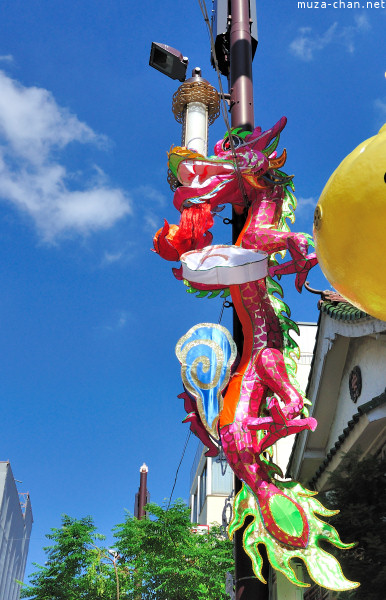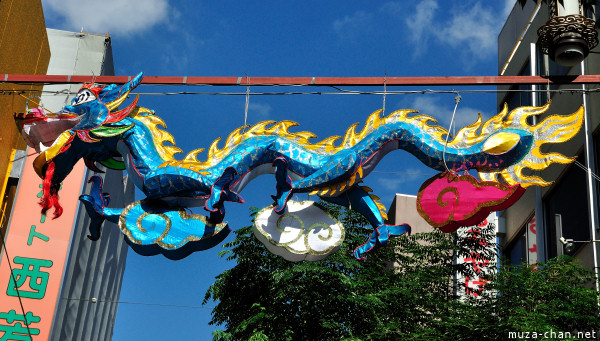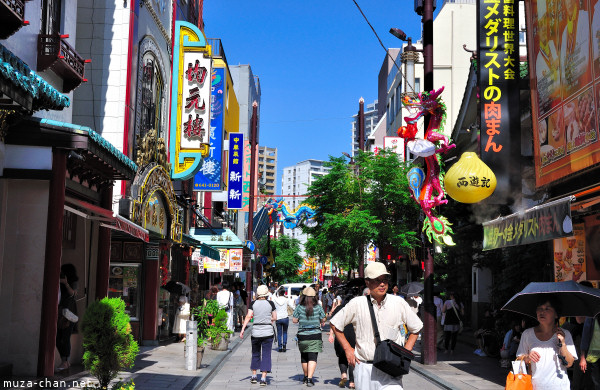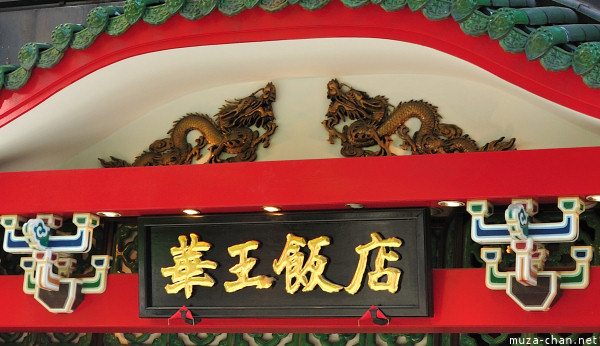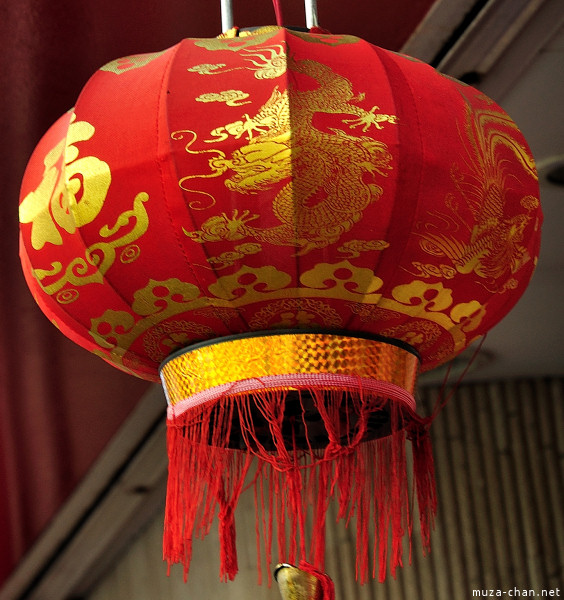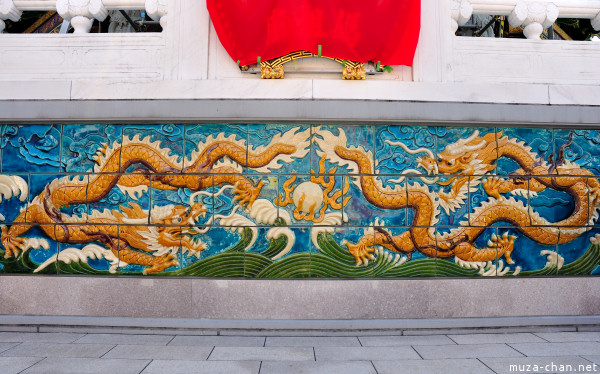If you like the Chinese Dragons, you must visit China or… a Chinatown. In Japan, you can visit Yokohama Chinatown, the largest from Asia.
The Dragon is one of the most important creatures from the Chinese mythology, a benevolent being, symbol of strength, wisdom, good fortune and longevity.
Also, the Dragon is a symbol of Imperial power.
According to a legend, the Chinese Emperor Huang Di (the Yellow Emperor), who lived over a hundred years, attained immortality because he was taken by a Dragon from the Heavens. Other versions are that before dying, the Emperor became half man, half Dragon and disappeared. His descendants called themselves “Descendants of the Dragon", and the golden or yellow Dragon with 5 claws on each foot became the symbol of Chinese Imperial power.
The Chinese Dragons are represented with a camel head, deer horns, hare or demon eyes, bull ears, snake neck, clam belly, eagle claws, tiger paws and 117 carp scales…
The Dragon controls water, rain and floods and because of this is often represented sitting on clouds.
In Yokohama Chinatown you can encounter the symbol of the Dragon almost everywhere. From vivid colored paper Dragons coiled on the poles…
… to those decorating the buildings…
… or on the lanterns…
…and, of course, on Temples, like these from the Mazu Miao Temple…
More photos:
Dacă vă plac dragonii chinezeşti, trebuie să vizitaţi China sau… un Chinatown. În Japonia se poate vizita Yokohama Chinatown, cel mai mare din Asia. Dragonul este una dintre cele mai importante creaturi în mitologia chineză, fiinţă benefică, simbol al puterii, înţelepciunii, norocului şi longevităţii.
Mai mult decât atât, în China dragonul este simbol al autorităţii imperiale.
Conform unei legende, Huang-Di (Împăratul Galben), legendarul împărat chinez care a trăit peste 100 de ani, a fost luat înainte de a muri de un dragon şi dus în ceruri. Altă variantă a legendei spune că înainte de a muri, împăratul s-ar fi transformat într-o fiinţă jumătate om jumătate dragon şi ar fi dispărut. Urmaşii lui şi-au luat titlul de “descendenţi din dragon", iar dragonul galben/auriu cu 5 gheare a devenit simbolul puterii imperiale.
Dragonii sunt reprezentaţi ca având cap de cămilă, coarne de cerb, ochi de iepure, urechi de bou, gât de şarpe, burtă de moluscă, labă de tigru, gheare de vultur şi 117 solzi de crap…
Dragonul controlează apa, ploaia şi inundaţiile şi de aceea este reprezentat stând pe nori.
În Yokohama Chinatown se poate întâlni simbolul dragonului pretutindeni. De la dragonii din hârtie viu coloraţi încolăciţi pe stâlpi…
… la cei de pe clădiri…
… chiar şi pe felinare…
…şi bineînţeles şi la temple, ca aceştia de la templul Mazu Miao…
Mai multe fotografii:
Read more
